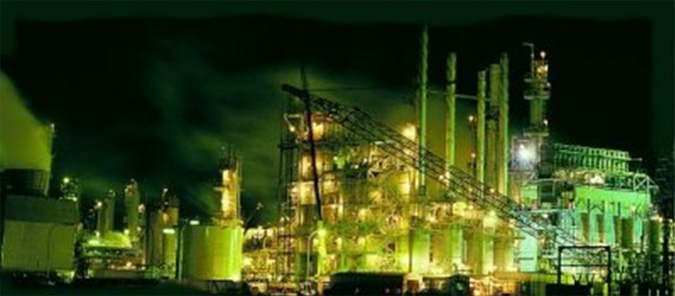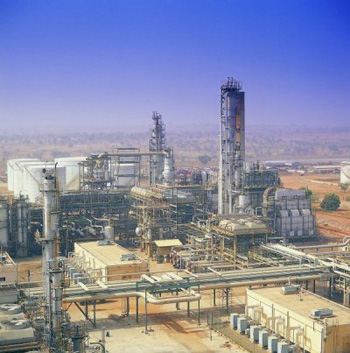Pipeline Corrosion Inhibitor for Gas, Oil and Water
Corrosion is a big issue in daily life, however, it is a even bigger concern to large industries. This is where corrosion inhibitors come in. It is a chemical compound which is usually added to liquid or gas and helps in decreasing the corrosion rate of the material.
The main reason this is very effective is because it forms a coating that prevents corrosive substances from coming in contact with the metal. Although the effectiveness of such corrosive inhibitors does depend on the fluid composition and quantity of water.
Common Applications
The type of corrosion inhibitor depends largely on the applications. Here are some of the common applications:
- To reduce the corrosive effect of acid in boilers, volatile amines is made use of.
- In case of Copper surface, Benzotriazole is useful.
- Paints often include corrosive inhibitors like zinc phosphate.
- Hydrogen sulfide is a popular corrosive inhibitor for the oil refineries.
 Corrosion problem in Oil & Gas industries
Corrosion problem in Oil & Gas industries
The production process of gas and oil includes the use of water in some form or the other. The main reason for the inclusion of water is due to condensation or formation or because of the water injected as a lift assist. The fluids also contain acidic gasses like hydrogen sulfide and carbon dioxide along with oxygen, which is bad news when it comes to preventing corrosion. These acidic gases increase the chance of corrosion on coming in contact with any metal. Any corrosion of this kind will greatly impact the pipeline production equipment and even the transportation system and is bad for the Oil and Gas industry.
Pipeline Corrosion-Inhibitor
The problem of corrosion in oil fields is a highly complex and serious issue. Hence requires in-depth analysis and thorough understanding of the unique conditions of the materials in use. An in-depth analysis is necessary to come up with a optimal solution for preventing corrosion with the help of corrosion inhibitors. This is where corrosion inhibitors come into use. They are able to react with the metal surface and produce an impermeable film layer that prevents corrosive material from reacting with the metal pipelines.
There are several other factors to consider as mentioned here:
- Solubility or Dispersion
- Blend Stability
- Inhibitor Selection
- Selection of acids
- Special Considerations
- Neutralizing with acid
The main group of corrosion-inhibitor formulations includes oil soluble, oil soluble & water dispersible, water dispersible. Besides which, the pipeline corrosion inhibitor depends on the field condition and configuration like gas & water, gas & oil, gas & oil & water, only oil, only oil & water.

Benefits of using Pipeline Corrosion Inhibitors
There are several benefits of implementing corrosion inhibitors:
- Corrosion inhibitors extend the life of oil & gas industry equipment by 250%.
- Helps reduce the cost of repair arising due to damage from corrosion.
- Reduces operational malfunction since all equipment is protected and there is no interruption of service.
- Helps maintain the integrity of a pipeline
- Extends the life of all equipment and ensures operational safety.
Thus, corrosion inhibitors are important, especially in the oil & gas industry which make use of pipelines. Besides the fact that it saves time and money it also decreases the issues arising from damages to equipment including pipelines. They are effective in preventing major issues arising in pipelines that carry oil, gas or water since it prevents them from eroding any metal it comes in contact with inside a pipeline.
Pipelines are usually widespread and often very hard to access as well. Issues with such pipelines (like corrosion) would take a large effort to fix; Thus, Mmking use of appropriate corrosion inhibitors is a better solution.